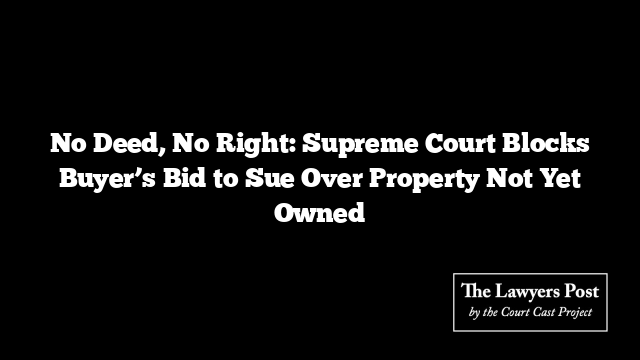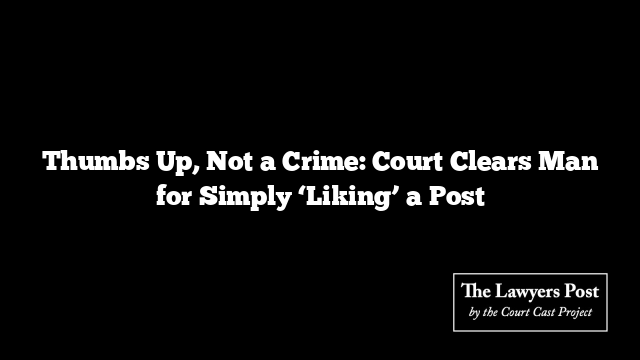In a clear-cut ruling that lays down the limits of a property buyer’s reach, the Supreme Court has shut the door on a proposed purchaser’s attempt to drag a third party to court over a property they never legally owned.
The case revolved around a familiar situation—an agreement to sell signed, but the ink never hitting a registered sale deed. The would-be buyer, armed with nothing more than a promise, tried to stop a third party from interfering with the property. The catch? The third party wasn’t part of the deal, and the actual seller—the only person who could have possibly claimed a right—wasn’t even made a party to the suit.
The apex court wasn’t amused.
“An agreement to sell, by itself, does not create ownership,” the bench declared. “Until a proper sale deed is executed, any legal right to protect the property remains with the vendor. The proposed purchaser has no standing to sue a third party asserting title and possession.”
Put simply: No sale deed, no lawsuit.
The dispute landed before Justices JB Pardiwala and R Mahadevan, who found the lower courts had taken a wrong turn by allowing the suit to survive. The would-be buyer had knocked on the trial court’s door, seeking a permanent injunction against a trust that was already in possession of the property. The trust pushed back, asking for the plaint to be thrown out under Order VII Rule 11 of the CPC. Both the trial court and High Court refused, leaving the trust with little choice but to go higher.
And higher they went.
Once in the Supreme Court’s hands, the issue boiled down to this: Could a person who merely agreed to buy a property sue someone already in possession, without ever having legal title?
The Court didn’t hesitate.
While acknowledging that some rights may be created by such agreements, the Court made it clear those rights are personal—enforceable only against the vendor, or in limited cases, under Section 53A of the Transfer of Property Act. That section applies to protect a buyer’s possession when they’re already in it—not when someone else holds the keys.
The buyer in this case? Never had possession. Never had legal ownership. And crucially, never sued the seller—the only one who could have stood up in court to defend the property’s status.
“This suit should never have been entertained,” the judgment stated bluntly. “It’s not maintainable in the absence of the vendor, and the respondents lack the locus to seek any declaration over the title.”
The Supreme Court reversed the earlier decisions and allowed the appeal—firmly locking out any attempt to convert a promise to sell into a right to litigate against strangers.




